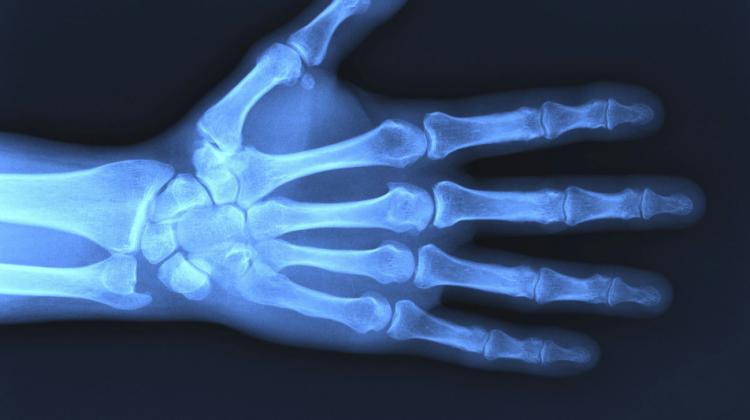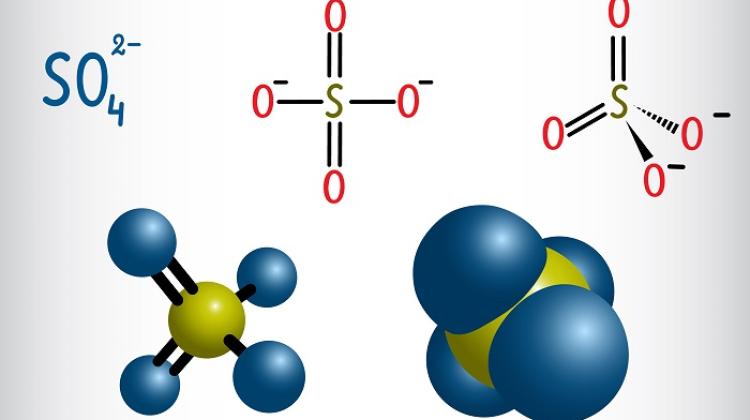Inflammation do not have to weaken our bones

Inflammatory conditions which are associated, for example, with allergies, are often accompanied by a reduction in bone mineral density. This in turn leads to osteoporosis. If scientists knew how cytokines affect the bone tissue, they would be able to block the pathological activity of the immune system. Urszula Kędzierska of the University of Warsaw is trying to find and describe the paths of these interactions.
Correct bone structure is the result of the activity of two types of cells. The first are the osteoblasts, which form bone mineral scaffold. The second type are osteoclasts. These cells are responsible for bone resorption, they resorb boney tissue. The balance between these opposing activities of these two cell types is regulated by hormones, neurotransmitters and cytokines.
Urszula Kędzierska intends to explore signaling pathways activated by cytokines in bone cells. She explained that when infection occurs, activated immune system produces pro-inflammatory cytokines. These proteins are signal molecules that carry information about the threat that is understandable to most of the body\'s cells. The body switches to "emergency mode" and develops a systemic inflammatory response. Such a state is not a state of equilibrium, the functions of other systems are disrupted and subordinate to the principal objective of survival.
"Therefore, in pathological conditions, when the immune system is too excited or activity lasts too long, the consequences of dysfunction of other systems are becoming more severe. As a result, the immune system destroys the body instead of protecting it. If we could block the effect of inflammatory cytokines on the cell, the immune system would not destroy other systems" - explained PhD student at the Faculty of Biology, University of Warsaw .
Originally it was thought that the specialized information molecules in the body are characteristic for a specific systems, for example cytokines and neurotransmitters for the immune system. It was assumed that they are a "code" which cells use to communicate within their system, incomprehensible to other cells. Now, scientists know that this view was false, and receptors for cytokines and neurotransmitters can be found in most cell populations.
"Unfortunately, as a result of these false assumptions made in the past, now we know much less about the transfer of information between two separate systems, in my case, bone and immune system, than about single-system cell communication" - said the researcher.
According to Urszula Kędzierska, the main pro-inflammatory cytokine - tumor necrosis factor - stimulates the activity of osteoclasts and inhibits the activity of osteoblasts. Therefore, a reduction in bone mineral density, leading to osteoporosis, is a common phenomenon accompanying chronic inflammation.
The PhD student studies the gene, which is one of the factors responsible for phosphorus management in the body. PHEX gene expression is characteristic of the osteoblasts, and a mutation in this gene is the cause of the bone disease called X-linked hypophosphatemia.
" PHEX protein is produced mainly in bone cells - osteoblasts and osteocytes. When osteoblasts lack this factor, they can not properly mineralize. Moreover, PHEX regulates the release from the bone tissue into the bloodstream of agents that modulate the collection of phosphorus in kidneys and intestine, and phosphorus is needed for the solid mineral bone scaffolding" - said Ursula Kędzierska.
There are many factors that determine the level of phosphorus, and they react with each other in a very complex manner. Phosphorus is absorbed from food in the intestines, and transporter proteins that exchange sodium molecules for phosphorus are located in the kidneys. On their activity depends how much of this mineral is excreted in the urine. More than 80 percent the entire pool of phosphorus in the body is deposited in bones.
Ursula Kędzierska’s research doers not focus on the regulation of phosphorus metabolism. The researcher works only on bone cells, she does not examine how inflammation affects the intestinal absorption and resorption in the kidneys. However, the results of her work can contribute to the development of new therapeutic strategies to combat the depletion of bone tissue in patients with ulcerative colitis, Crohn\'s disease or rheumatoid arthritis.
***
The work was awarded in the University of Warsaw scholarship program "Doctorates for Mazowsze". The project, implemented at the Center for Open and Multimedia Education UW (COME), has received funding through the Mazowsze EU Programmes Implementation Unit, from the European Social Fund under Sub-measure 8.2.1 "Support for cooperation between science and business" of the Human Capital Operational Programme.
PAP - Science and Scholarship in Poland
kol/ ula/
tr. RL
Przed dodaniem komentarza prosimy o zapoznanie z Regulaminem forum serwisu Nauka w Polsce.

















